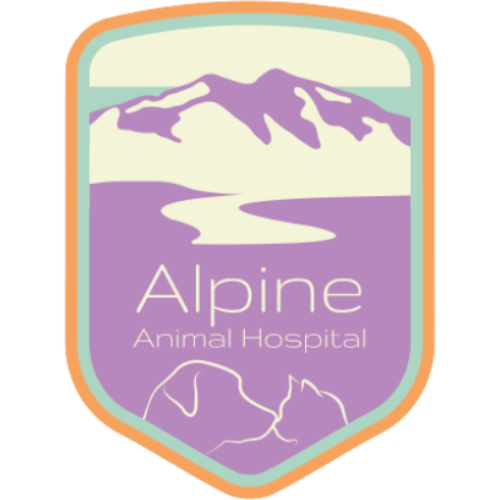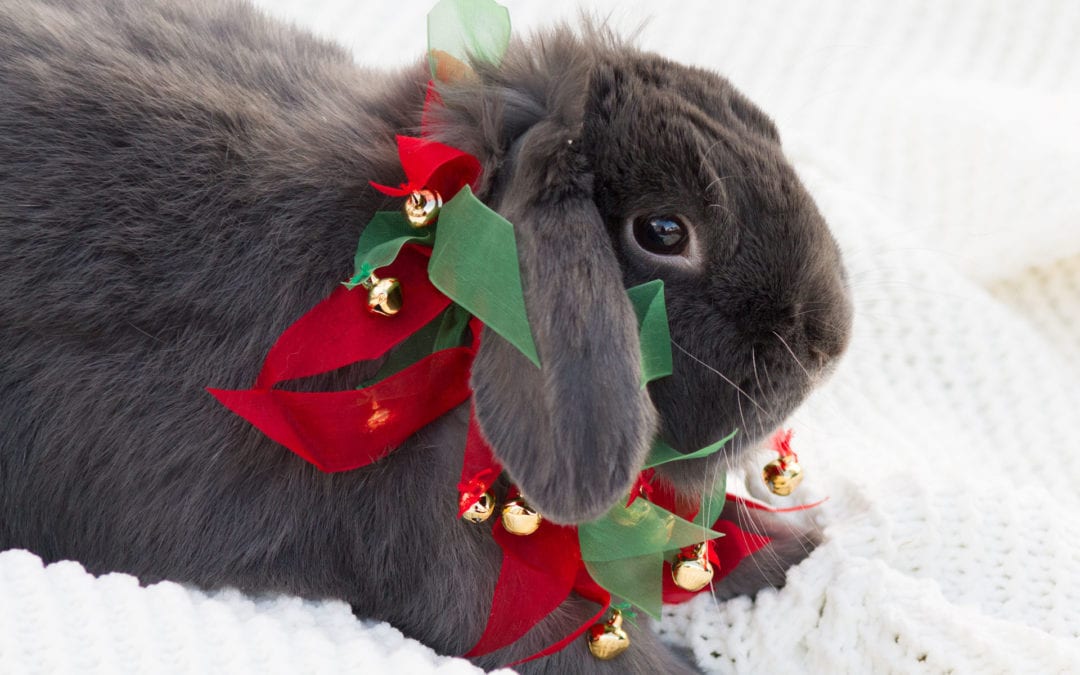Happy Holidays everyone! This year has been stressful and overwhelming for everyone, and we all deserve some socially distanced time with family during the holidays. While you and your family are enjoying your time together don’t forget to keep an eye on your pet(s). During the holidays, we typically see an increase in the amount of pet toxicity cases and they are often centered around a large meal or dessert table. At Alpine Animal Hospital, we are committed to keeping you and your beloved pets safe. Here is a list of some holiday hazards.
Food
The holidays are full of delicious food and amazing aromas that leave you and your pet’s mouth watering. While there are many foods that are okay for pets to eat, there are dangerous ones that can turn your holiday dinner into a trip to the emergency room. Below is a list of the most common foods that are toxic for your pet.
1. Chocolate, coffee, caffeine: All of these contain methylxanthines, particularly theobromine and caffeine, which are highly toxic at the right dose. Theobromine causes vomiting, diarrhea, hyperactivity, tremors, seizures, arrhythmias (abnormal heart rhythms), and even death if not treated quickly enough. Note that all forms of chocolate can be toxic; baker’s chocolate and dark chocolate being the most harmful.
2. Grapes/Raisins: Although the toxic component is still unknown, grape or raisin ingestion can cause severe kidney failure in dogs. Keep raisins and grapes out of reach from your pet and seek immediate care in case of known ingestion.
3. Xylitol: Xylitol is a common sugar substitute found in sugarless gum, toothpaste and some brands of peanut butter. In our pets, the pancreas confuses xylitol for real sugar and a large amount of insulin is released to store sugar, causing profound low glucose levels. This dramatic plummet in the blood sugar levels leads to weakness, disorientation, tremors, and potentially seizures within 12 hours. It does not take much (one stick of gum in a small dog), to see deleterious effects.
4. Leftovers: Fatty, spicy, spoiled foods and leftover bones are dangerous to feed to your pet. We commonly see pets rushed to the emergency clinic after a high fat meal causing pancreatitis (inflammation of the pancreas). This is a potentially lethal disease that requires hospitalized and supportive care. Dogs and cats who develop pancreatitis may experience vomiting, diarrhea, and/ or extreme abdominal pain. Bones should never be given to your pets. They are not digested properly and may cause damage as they make their way through your pet.
5. Alcoholic Beverages: If your holiday party involves alcoholic beverages, be sure to keep them out of reach of your dog/cat. Even a small amount of alcohol can make your pet weak, ill, and in some cases coma or death from respiratory failure.
Seasonal Plants
What would the holiday season be without a Christmas tree and holiday plants to add to the cheer? Some plants, while steeped in tradition and are beautiful when on display in our homes, also pose a toxicity hazard to our pets if consumed. Common plants that can be toxic for your pet include:
1. Lilies: All parts of a variety of lilies are poisonous to a cat. Ingestion of even a small amount can cause severe kidney damage and requires immediate veterinary support.
2. Poinsettias can cause some irritation in the mouth and stomach, and sometimes vomiting.
3. Pine needles: Consumption of pine needles can result in oral irritation, vomiting, diarrhea, trembling, and posterior weakness.
4. Holly/Mistletoe: These holiday plants can cause intense vomiting and diarrhea. Mistletoe ingestion has also caused difficulty breathing, collapsing, behavioral issues, hallucinations, and can even be fatal.
5. Marijuana: Ingestion of Cannabis results in depression of the central nervous system and incoordination, as well as vomiting, diarrhea, drooling, increased heart rate, and even seizures and coma.
Decorations
Decorations are another holiday tradition that can lead to unforeseen vet visits for your beloved pet. Cats and kittens in particular love the appeal of shiny, playful decorations.
1. Tinsel and ribbons: As adorable as it is to see our cat batting or carrying around a decoration, that nibble can turn into swallowing the string material. These strings could end up getting stuck in their gastrointestinal tract and lead to obstruction of their intestines. These pets present with severe vomiting and dehydration, resulting in the need for surgical intervention to remove the “toy.”
2. Batteries: After the joy of opening Holiday presents, many families fill the rest of their day trying out new gadgets and electronics. Many electronics require batteries to power them; a pet’s ingestion or chewing on a battery leads to lead poisoning and instability of their red blood cells. Signs of lead poisoning in dogs include behavior changes (lethargy, aggression, constant snapping, seizures, hysteria, hiding in dark areas, and depression), frothing at the mouth, lack of appetite, weight loss, vomiting, and diarrhea. Signs of lead poisoning in cats include loss of appetite, vomiting, diarrhea, and seizures.
3. Electrocution: With so many outlets being used, it is not uncommon for our curious dog or cat to chew on cords. If a pet is electrocuted, get them to see a veterinarian as soon as possible. Electrocution can cause severe tissue damage and can also lead to serious internal complications, such as pulmonary edema (fluid in the lungs).
Your animal may become poisoned despite your best efforts to prevent it. You should keep telephone numbers for your veterinarian, a local emergency veterinary service, and the ASPCA Animal Poison Control Center 1-888-4ANI-HELP (1-888-426-4435) in a convenient location. If you suspect that your pet has ingested something poisonous, seek medical attention immediately.
We hope that these tips help keep your household pet(s) safe this holiday season. We at Alpine Animal Hospital wish you and your family, two-legged and four-legged, a happy and safe holiday season!

